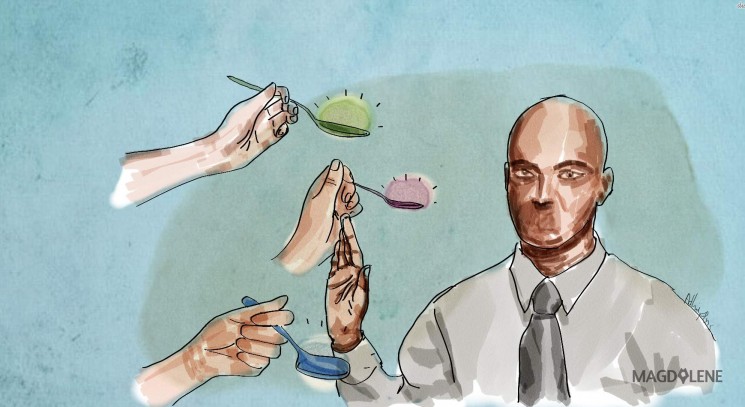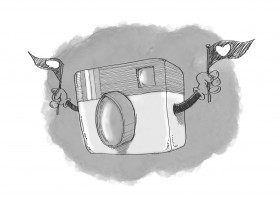The Department of Education did something I had requested of one of the undersecretaries more than a year ago. They revised their vision statement to remove the term “God-loving.”
Department Order No. 36 issued last September 4, 2013, shows the new vision statement as: “We dream of Filipinos who passionately love their country and whose values and competencies enable them to realize their full potential and contribute meaningfully to building the nation.” The old vision statement was “By 2030, DepEd is globally recognized for good governance and for developing functionally-literate and God-loving Filipinos.”
I am sure that the change was not made because of my timid request at a forum about some unrelated topic. It may have been made because of the request of the Filipino Freethinkers who wrote a formal but still polite request to the Department of Education . (A pause for ethical disclosure. I am a senior adviser of the Filipino Freethinkers.)
I suggest that people read the letter of the Filipino Freethinkers. They may wish to verify whether the tone was indeed respectful. The letter also cites provisions of our Constitution that make the request, in my mind, reasonable and lawful.
Mandatory prayer
My purpose however is not to argue the Constitution but rather to assuage those who would be offended by the request. This is not an anti-religion move. It is also not meant to disrespect the beliefs of Filipinos of any faith. Nor is it a request made by devils out to turn the country into their playing ground.
Let me explain by citing my own experience. For almost 30 years now I have been giving free services to women, mostly poor, who have experienced sexual violence. In quite a number of cases, this involves testifying in court for them. When I go to court, I am always confronted with a moral dilemma.
My moral dilemma is that I have to pray in court. Before the judge starts any proceeding we all have to get up and pray. And the truth is, I have no religion.
Which is why I find it difficult when I have to pray. I do not want to disrespect the judge. As an expert witness, I need to present myself in the best light possible for my patient. If I refuse to pray without explaining (and you can't in court, really) will I be perceived as disrespectful, immoral and untrustworthy? My professionalism will not allow me to put myself in this light. And so, against my conscience, I pray. Or at least pretend to pray.
Telling the truth
From my past experience as an agnostic, I can already anticipate some of the reactions from those who are against the secular provisions of our Constitution. Some would say that I can refuse to pray, just don't stop others from praying. But the reactions one gets from the very same religious people, make me fear that refusing to pray will bring me under harsh judgment.
Here is what Rei Lemuel Crizaldo of Nation Watch says on the Department of Education Order: In principle, the law of the land ought to reflect the shared aspirations and values of its people. In a country with a population of 80% Christians and 5% Muslims, in which both faith traditions expressing strong belief in God and the need for godly values, the recent move of the DedEd appears to run contrary to religious nature and culture of Filipinos.
My problem with this is the implication that I do not have any shared values with Christians and Muslims just because I have no belief. I have friends from different religions who support secularism. And there are many values I share with my Christian and Muslim friends. Many of the Filipino Freethinkers are people who believe in a higher power or a God.
One shared value is that when we are called upon to witness the truth, even when testifying in court, you must tell the truth.
And this is my truth. From the moment of my birth my parents were agnostics, and they died agnostics. I have explored many other religions sincerely, and ended up understanding agnostic spirituality. One of the most important values of agnosticism is truthfulness. This is why, when we say that we don't know whether there is a God, we don't say it lightly. Agnostics take the search for God very seriously. It is an enduring search, as it should be, whether you settle on a belief at some point or not.
Those of us who are sincere non-believers do not come to this position in anger against other religions. We do not take this position merely to be noticed or irritate people. I take this position because after investing in sincere prayer, deep meditation, studying religion and science, seeking the divine---I cannot say for certain whether there is a God.
Humility and tolerance
Another shared belief is that of humility. My parents taught me that my strongest and most deeply held feelings and beliefs, are nonetheless subject to doubt. I may feel strongly about something, whether this be science, or agnosticism or Marxism. I may have a set of beliefs that I think could save the world. But this does not give me the right to impose it on others. It does not allow me to demonize those who don't agree with it. Humility tells me the contrary, that the things I feel most deeply, that which motivate me to move, are not necessarily what will save the world.
A Buddhist book I read puts this succinctly: “If you see the Buddha, kill him.” This is not a call to violence, but in classic Buddhist tradition asks you to rethink your most basic premises. It asks you to reject any thoughts of knowing the absolute Truth as what might happen if you think you see the Buddha. Such a call for tolerance is also very much a part of Christian tradition. This is perhaps what the current Pope had in mind when he proclaimed that atheists are not barred from entering heaven.
I also take the Christian principle to “love your enemy” to mean that I do not demonize those who have a different belief from myself. I do not take an antagonistic position against any other religious belief or non-belief. Thus, while I am an agnostic who sincerely does not know, I do not take is as an insult that some people do know. Some know that God does not exist and they are atheists. Some know that God exists and they belong to a religion.
The benefit of doubt
The benefit of doubt here is that only a few would have the courage to ask questions like, “What does life mean? How do I live it? Under what moral precepts? Does God exist?” Few ask sincerely, without already knowing an answer that privileges only their upbringing, traditions, biases and comfort zones. Some of our deepest values are expressed not in the answers, but in the questions we ask. Our spiritual maturity is gauged by whether the answers we choose allow us to extend moral recognition to those who differ.
Therefore, I do not agree that it is part of Filipino culture or spirituality when Pastor Dennis Sy calls the Filipino Freethinkers “a group of people (who) doesn’t (sic) want God... So what I’m saying is I don’t have a problem that they have a problem with the God that I worship... ”
That is an untruthful depiction of people like myself that demonizes us just because we can't believe like Dennis Sy does. It isn't that I don't want God. It isn't that I have a problem with the God he worships. It is he who has a problem with me having a different belief. He believes I am against him just because I cannot agree with him. I do not find this attitude consistent with what I read in the Bible.
Pastor Sy's blog is on a website with the name “Act Like a Man.” This brought to mind a meme a friend sent me which says, “My dear, religion is like a penis. It's fine to have and take pride in, but when one takes it out and waves it in my face, we have a problem.”
A government for all
And waving religion around in bad taste is precisely what happens when government crosses the line and invokes any particular belief or non-belief. As I tell my colleagues in the college where I teach, “when I go to official events because it is my duty as a government employee to do so, I have no choice but to attend the religious ceremony (mass or invocation) that some government agencies mistakenly tack on to the program. I won't drag them out of their church, but why do some people insist on dragging me into theirs?”
I must say, lest I hurt some friends, that I happily attend private religious occasions like weddings, baptisms, seders, bar mitzvahs, etc. I abide with hosts (of whatever religious faith) who pray before we sit down to our meal. I am not offended, nor do I feel the need to tell them I am not of their faith, if they don't know. After all, I am invited by these good people to share in who they are. I would not go if I did not believe them to be good people with whom I have many values in common.
Whether we express those values through belief or some other form of spirituality is a small matter to me. I have no problem with their God. And because I trust that they are true believers, I trust also that they have no problem with the fact that I have not found one.
This story was first published in Rappler.com, a Manila-based social news network where stories inspire community engagement and digitally fuelled actions for social change.







Comments